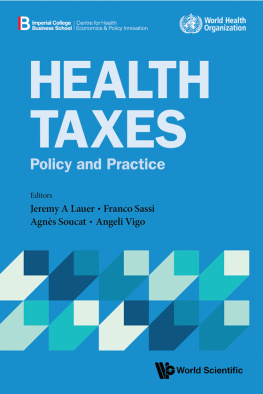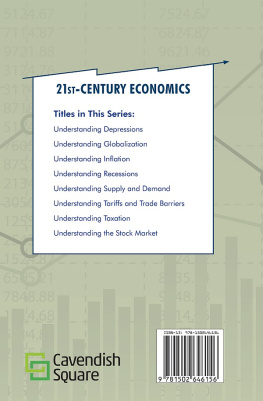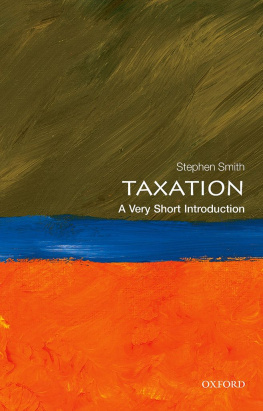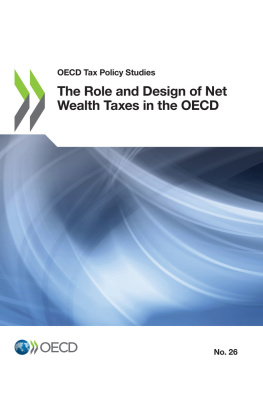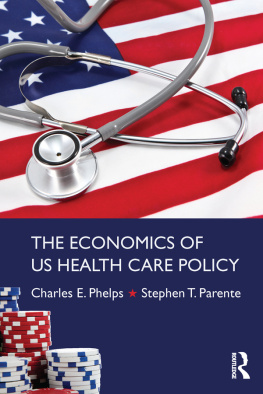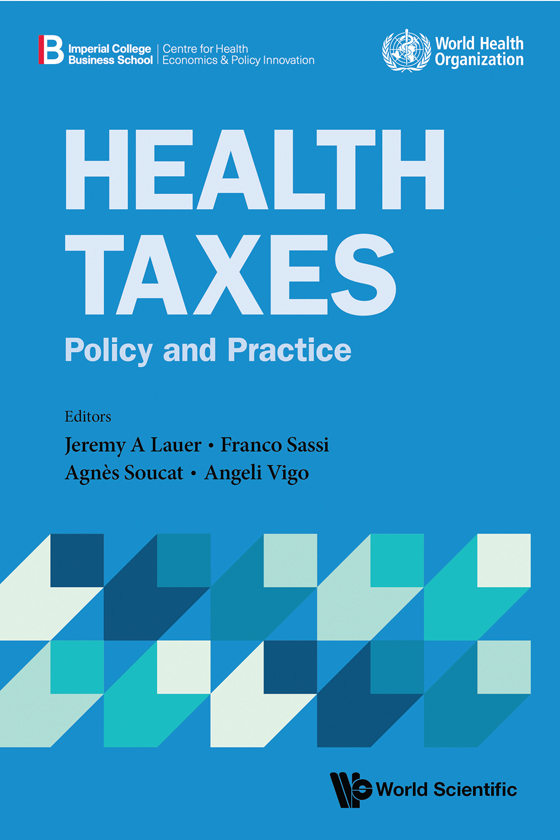Contents
HEALTH
TAXES
Policy and Practice
Published by
World Scientific Publishing Europe Ltd.
57 Shelton Street, Covent Garden, London WC2H 9HE
Head office: 5 Toh Tuck Link, Singapore 596224
USA office: 27 Warren Street, Suite 401-402, Hackensack, NJ 07601
Library of Congress Cataloging-in-Publication Data
Names: Lauer, Jeremy A., editor. | Sassi, F., editor. | Soucat, Agnes L. B., editor. | Vigo, Angeli, editor. | World Health Organization, issuing body.
Title: Health taxes : policy and practice / editors, Jeremy A Lauer, Franco Sassi, Agns Soucat, Angeli Vigo.
Description: Hackensack, New Jersey : World Scientific, [2022] | Includes bibliographical references.
Identifiers: LCCN 2022025017 | ISBN 9781800612389 (hardcover) | ISBN 9781800612396 (ebook for institutions) | ISBN 9781800612402 (ebook for individuals)
Subjects: MESH: Health Policy--economics | Taxes--economics | Economics, Medical | Health Promotion--economics
Classification: LCC RA410.53 | NLM WA 525 | DDC 338.4/73621--dc23/eng/20220708
LC record available at https://lccn.loc.gov/2022025017
British Library Cataloguing-in-Publication Data
A catalogue record for this book is available from the British Library.
Copyright 2022 by World Health Organization (WHO)
All rights reserved.
Open Access book published by World Scientific Publishing Company on behalf of WHO and distributed under the terms of the Creative Commons Attribution-NonCommercial-ShareAlike 3.0 IGO (CC BY-NC-SA 3.0 IGO) License, which permits any non-commercial use, distribution and reproduction in any medium, provided the original author(s) and source are credited and license the new creations under identical terms.
Disclaimer: The authors alone are responsible for the views expressed in this book and they do not necessarily represent the views, decisions or policies of the institutions or organizations with which they are affiliated.
For any available supplementary material, please visit
https://www.worldscientific.com/worldscibooks/10.1142/Q0365#t=suppl
Typeset by Diacritech Technologies Pvt. Ltd.
Chennai - 600106, India
Printed in Singapore
2022 World Health Organization (WHO)
https://doi.org/10.1142/9781800612396_fmatter
Forewords
Each year, 41 million people die from preventable non-communicable diseases (NCDs) such as cardiovascular diseases, cancers, chronic respiratory diseases and diabetes. Most of these deaths occur in low- and middle-income countries, and could have been avoided by eliminating tobacco use and alcohol misuse and by improving unhealthy diets.
One of the most cost-effective ways of addressing NCDs is through the intelligent use of health taxes. One of the aims of health taxes is to reduce the consumption of unhealthy products; another is to disincentivise unhealthy behaviours that are typically associated with such products. Health taxes achieve both these aims by changing the price faced by consumers so that healthier choices are promoted.
Health taxes can also serve as a revenue booster for governments, a fact which is particularly relevant now, as governments are facing the challenges of financing the Sustainable Development Goals. Now more than ever health taxes can play a vital role in achieving the twin goals of improving health outcomes and in raising public-sector revenues.
Despite their demonstrated benefits, health taxes remain underutilised globally. To address this problem, WHO (through its health system teams and with the support of its health promotion teams), spearheaded a multi-year programme of knowledge exchange with leading experts in the field of health, tax policy, public financial management, trade law and public governance. The discussions are now chronicled in this book, Health Taxes: Policy and Practice.
This book represents the first coherent discussion of health taxes as an independent domain, and authoritatively addresses the expressed concerns of policymakers, and fiscal-sector practitioners, in particular. It also provides a long-needed bridge between global health and fiscal policy concerns.
Zsuzsanna Jakab
Deputy Director-General World Health Organization
Health taxes (excise taxes on tobacco, alcohol and sugar-sweetened beverages) are an important tool to simultaneously improve health and fiscal outcomes. Introducing or reforming health taxes can improve health by reducing the consumption and associated negative externalities of health-harming commodities. They can also improve fiscal balances by increasing tax revenue and reducing health care costs associated with illnesses and injuries in the long run. These taxes are a pro-poor and progressive policy once one accounts for health and productivity benefits of reduced consumption on households.
In this current environment where health and fiscal systems are under serious strain, health taxes are more important than ever before. However, to achieve maximum benefit, health taxes need to be designed and administered well. We emphasise here the importance of looking at health taxes in a holistic manner, including the structure of the tax system and the incidence of these taxes, all while aiming at rate levels that maximise health and fiscal benefits. Equally important, reforms must be underpinned by the understanding that tax policies are only as effective as the tax administration systems that implement them.
I welcome the publication of Health Taxes: Policy and Practice. This timely publication presents a broad perspective and rich set of contributions from a wide-ranging group of experts on health taxes. It is a useful resource for researchers, policymakers and practitioners, and will be an important reference to all of them as we continue to support policies that bring about sustainable economic development and greater welfare including in terms of health outcomes for all.
Marcello Estevo
Global Director
Macroeconomics, Trade & Investment, World Bank
2022 World Health Organization (WHO)
https://doi.org/10.1142/9781800612396_fmatter
Contents
Franco Sassi, Jeremy A Lauer, Agnes Soucat, Angeli Vigo, and Jeremias Paul
Cline Colin, Gioia de Melo, and Bert Brys
Lisa M Powell and Frank J Chaloupka
Annalisa Belloni and Franco Sassi
Martin White, Jean Adams, Cherry Law, and Peter Scarborough
Sarah Mounsey, Lisa M Powell, and Frank J Chaloupka
Norman Maldonado-Vargas and Blanca Llorente
Andreia Costa Santos, Thiago Hrick de S, Michael Oliver Hinsch, Ernesto Sanchez Triana, and Jeremy A Lauer
Lisa M Powell and Frank J Chaloupka
Norman Maldonado-Vargas
Ceren Ozer and Susan P Sparkes
Katherine Smith and Mark Hellowell
Rosa Carolina Sandoval, Maxime Roche, Anne-Marie Perucic, Miriam Alvarado, Itziar Belausteguigoitia, Luis Galicia, and Guillermo Paraje
Benn McGrady and Kritika Khanijo
Thomas F Babor, Jeff Collin, and Maristela G Monteiro
Filomeno Sta Ana, Angeli Vigo, and Jeremias Paul
Angeli Vigo, Jeremy A Lauer, Franco Sassi, and Agnes Soucat
2022 World Health Organization (WHO)
https://doi.org/10.1142/9781800612396_fmatter
Acknowledgements
This publication was developed in close coordination with the WHOs Fiscal Policies for Health Team, led by Jeremias Paul Jr.

